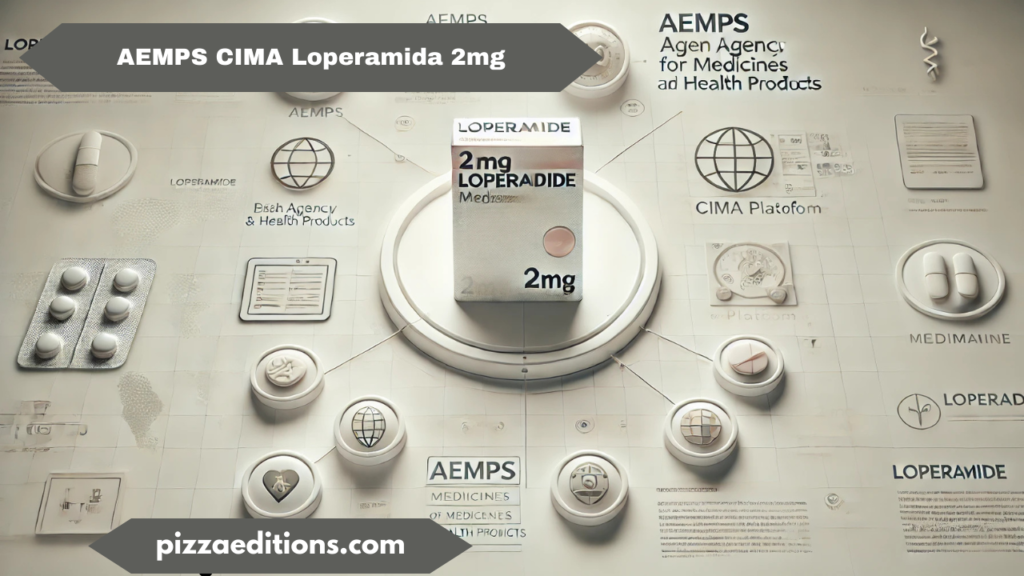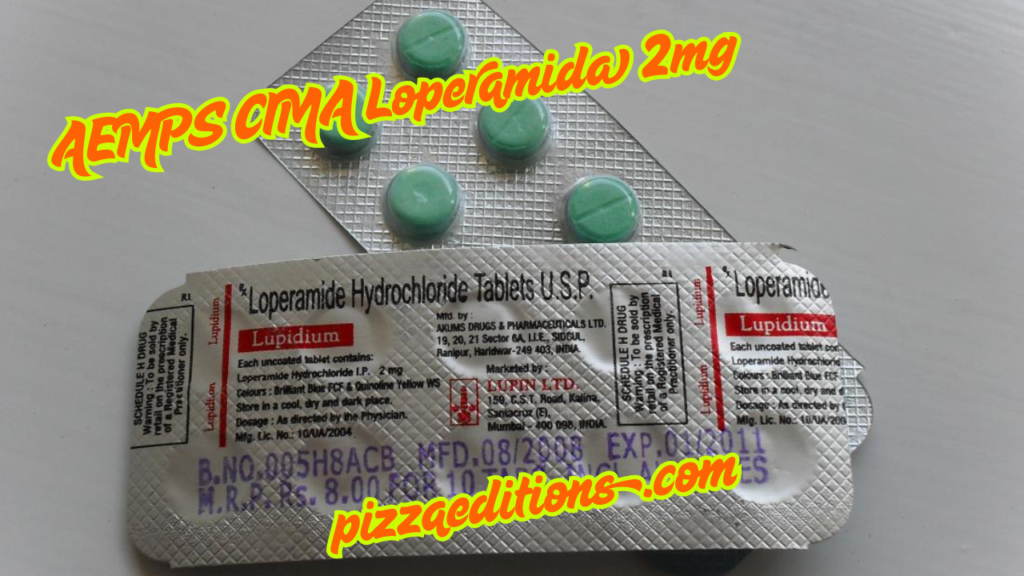Loperamida 2mg, as registered under AEMPS CIMA, is one of the most commonly used antidiarrheal medications in Spain and many other regions. In this comprehensive guide, we will explore everything there is to know about this medicine — from what it is, how it works, and its approval by AEMPS CIMA, to usage guidelines, side effects, warnings, and practical considerations for users. Whether you’re a patient, a pharmacist, or simply someone looking to understand this medication better, this guide is built to give you an in-depth and complete picture.
What is AEMPS CIMA and How is Loperamida 2mg Regulated?

AEMPS (Agencia Española de Medicamentos y Productos Sanitarios) is Spain’s leading authority on the regulation and control of medicines and health products. Within AEMPS, the CIMA (Centro de Información Online de Medicamentos de la AEMPS) serves as a centralized online resource providing detailed, official information about all approved medications in Spain.
Loperamida 2mg is officially listed and regulated under this platform, meaning its quality, safety, and efficacy have been thoroughly reviewed. Users can trust that the medication meets strict pharmaceutical standards, making it a reliable choice for the treatment of diarrhea.
The CIMA database allows healthcare professionals and patients alike to search for the most up-to-date information, including package leaflets, dosage forms, active ingredients, and potential drug interactions.
Understanding Loperamida 2mg: What It Is and How It Works

Loperamida 2mg is an antidiarrheal agent that works by slowing down the movement of the gut. This results in the intestines having more time to absorb water and electrolytes from the feces, making stools firmer and less frequent.
The medication is a synthetic opioid, but it does not cross the blood-brain barrier, which means it doesn’t cause central nervous system effects or lead to dependence when used properly.
Commonly sold in oral tablet or capsule form, Loperamida 2mg is primarily used for:
- Acute diarrhea (sudden onset)
- Chronic diarrhea (such as in cases of irritable bowel syndrome)
- Managing ileostomy-related output
Approved Indications and Dosage Guidelines
According to AEMPS CIMA-regulated guidelines, the standard dosage and indications for Loperamida 2mg are:
Adults
- Acute diarrhea: Start with 2 capsules (4 mg), followed by 1 capsule (2 mg) after each unformed stool. The maximum intake should not exceed 8 capsules (16 mg) each day.
- Chronic diarrhea: Often begins with 2 mg twice daily, which can be modified based on response, not surpassing 16 mg daily.
Children
- Not recommended for children under 12 years without medical supervision.
- For children between 12 and 17, doses should be determined by a healthcare provider and generally follow lower thresholds than for adults.
Elderly
- No special dosage adjustment is typically necessary, but monitoring is recommended due to potential sensitivity to medications.
Precautions and Contraindications

While Loperamida 2mg is effective and widely used, there are several important precautions users must consider:
- When diarrhea is brought on by bacterial infections like Shigella, Salmonella, or Clostridium difficile, avoid using this medication as it may exacerbate the condition by slowing down the bowel.
- Do not use if you have diarrheal fever or bloody stools.
- Before taking Loperamida 2mg, women who are pregnant or nursing should speak with their doctor.
- Because their metabolism is slower, patients with liver issues may need to have their doses modified.
- It is not recommended to take the drug in place of electrolyte and fluid replacement.
It’s also crucial to identify the underlying cause of diarrhea before starting treatment with Loperamida, especially if symptoms persist beyond 48 hours.
Common and Rare Side Effects
Like all medicines, AEMPS CIMA Loperamida 2mg can cause side effects, though not everyone gets them. Most side effects are mild and go away on their own.
Common Side Effects:
- Constipation
- Abdominal pain
- Nausea
- Flatulence (gas)
Rare Side Effects:
- Severe allergic reactions (rash, swelling, difficulty breathing)
- Abdominal distension
- Ileus (a rare blockage of the intestine)
In very rare instances, misuse or overdose — especially in children — can lead to serious cardiac effects, including irregular heart rhythms. Therefore, self-medication and exceeding the recommended dosage is strongly discouraged.
Interactions with Other Medications
Before using Loperamida 2mg, patients should inform their doctor or pharmacist of any other medications being taken. Some substances may interact with Loperamida and alter its effect, including:
- Ritonavir (used for HIV)
- Quinidine or verapamil (used for heart conditions)
- Cimetidine (used for acid reflux)
- Other CNS depressants (though central effect is low, caution is advised)
Drug interaction data is clearly outlined in the CIMA database, providing essential safety information for prescribers and users alike.
Storage and Packaging According to AEMPS CIMA
Loperamida 2mg tablets should be stored at room temperature, away from moisture and direct sunlight. The packaging, as regulated by AEMPS CIMA, includes tamper-proof blister packs with clear labeling indicating batch number, expiration date, and manufacturer.
The clear and standardized labeling ensures consumer safety, traceability, and easy identification, which is vital during medical emergencies or in case of product recalls.
Practical Use Cases and Advice for Consumers
For anyone considering using AEMPS CIMA Loperamida 2mg, here are some practical tips:
- Remain hydrated: Loperamida decreases the frequency of bowel movements but does not replenish depleted fluids. It can still be necessary to use oral rehydration salts (ORS).
- Use only as directed by a doctor for no more than 48 hours.
- Before taking any medication, always be sure to check the expiration date.
- See a doctor if the diarrhea doesn’t go away since it can be an indication of a more serious illness.
Conclusion: Why AEMPS CIMA Loperamida 2mg Remains a Trusted Treatment
AEMPS CIMA Loperamida 2mg: A Comprehensive Guide gives you a deep understanding of why this medication remains one of the most trusted treatments for diarrhea in Spain and globally. Its regulatory backing by AEMPS ensures safety, while its fast-acting formula offers relief when needed most.
By following proper dosage instructions, being aware of potential side effects, and understanding when not to use the drug, users can safely benefit from this essential over-the-counter medicine. Whether for travelers, patients with chronic bowel disorders, or those dealing with temporary stomach bugs, Loperamida 2mg continues to play an essential role in gastrointestinal care.
Also Read : Scott Thome St. Jude: Contributions, Medical Innovations, and Operations Leadership
